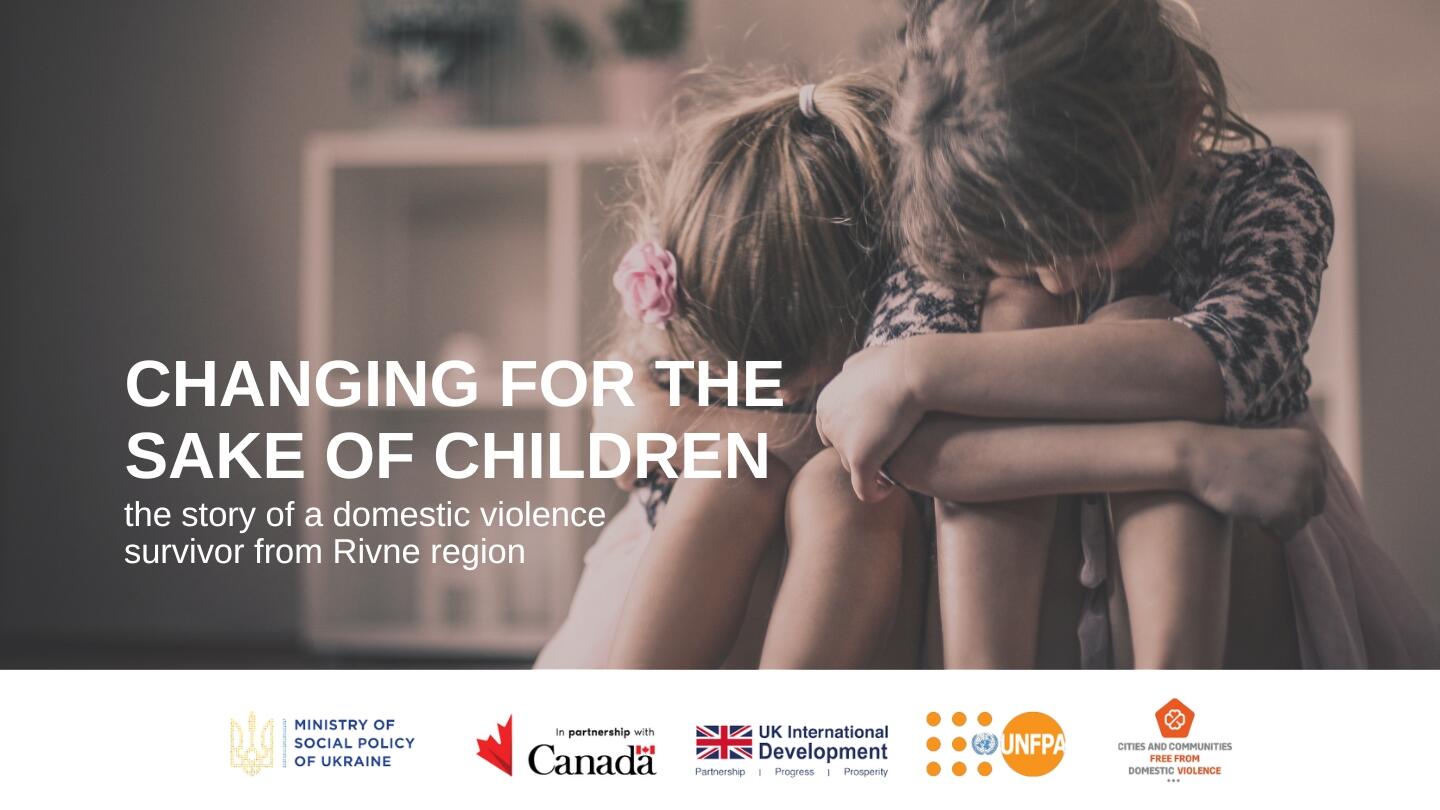At 28, Liliia has already endured 11 years of marriage, raised two daughters, and gone through a painful divorce. When she first met Yevhen, who was six years older, Liliia lacked the life experience to recognize hidden dangers. Her early pregnancy and dependence on her husband's family plunged her into a situation that seemed hopeless. For years, Liliia drifted along, avoiding responsibility for her own life and her children’s future. But when domestic violence entered their family, she realized she could no longer delay taking action.
According to Liliia, Yevhen's behavior had no obvious "red flags" when they first met. Despite his alcohol addiction, he showed care and reacted positively to the news of an unplanned pregnancy.
“We met through my sister—she was dating his younger brother. I got pregnant quickly, and at his initiative, we got married,” Liliia says.
Loneliness in marriage
At first, the young family moved into Yevhen's parents' house. Liliia says she and her mother-in-law hadn't gotten along since then. However, her father-in-law was very friendly to her - he called her “his daughter” and ensured she had food when the family couldn’t afford groceries. Yevhen was often abroad for work.
Liliia felt lonely and sometimes defenseless, so she locked herself in her room whenever loud drinking parties took over the house. On the day she gave birth, she was left without support, not fully understanding what was happening to her body due to inexperience.
“I called my mom and she called an ambulance. My husband arrived after I gave birth, drunk. I didn't even want to let him in,” she says. Soon after, Liliia became pregnant again, and her chances of gaining economic independence and returning to work became even slimmer. The couple moved into their apartment, but all childcare and household responsibilities fell on Liliia.
“The kids were my responsibility. My husband was always abroad. He sent money for the children because he had to,” she says.
Between his work trips, Yevhen drank heavily with his parents and friends. This lifestyle soon became the norm for Liliia as well, leading to the family being classified as socially vulnerable. However, Liliia says she ensured her children’s basic needs were met to prevent them from being taken away.
Domestic violence: the limit of patience
Over time, the relationship between the couple became increasingly tense. Once, Liliia caught Yevhen cheating with her sister. Each drinking session ended in scandal, often because Liliia refused to run errands to buy more alcohol. In retaliation, Yevhen became physically abusive—but only when drunk, Liliia said.
When Russia's full-scale war against Ukraine started, Yevhen joined the army. "When he came back, we were like strangers. Later he admitted that he had another woman and child there. He even offered to talk to her. He told the kids they would come live with us,” Liliia says.
After his return, Yevhen’s alcohol dependency worsened, with endless drinking binges.
“There were times he doused me with gasoline to set me on fire. The kids tried to protect me, and he hit them too. They called the police, but he wouldn’t open the door,” she said.
When Liliia finally told Yevhen she wanted to end their relationship, he took the children to his mother’s house and filed for divorce himself. That month, without her daughters, was one of the hardest of Liliia’s life, as she wasn’t even allowed to see them. Over the phone, her daughters constantly begged her to take them away from their father.
“I was desperate. I didn’t know what to do, so I just went to get them. A fight broke out; they threw out and burned all my things. My daughters and I just wandered through the village at night,” Liliia says.
Children reached out for help
It was Liliia’s daughters who sought help from specialized services, said Anastasia, a specialist at the daycare center for domestic violence survivors who worked with the family.
“What struck me most about this case was that the children had a backpack ready with spare underwear and socks. They were prepared to leave their father,” Anastasia says.
To protect Liliia and her daughters, the specialists placed them in a crisis room. This allowed the woman to catch her breath and calmly think about the next steps. Along with legal support, the family received psychological assistance, because, according to the specialist, both mother and daughters were “deeply traumatized.”
Even simple conversations with the specialists helped Liliia. “I didn’t think just talking could make me feel better".
The specialists also provided humanitarian aid, as Liliia had no money or basic belongings.
“When I came to the daycare center, I didn’t want anything. I had no job, no home, not even clothes. And I was afraid to return to my husband’s house for the children’s things,” she says.
The woman managed to find a job as a cashier at a local supermarket. Finding suitable housing was more difficult, but with the center’s help, Liliia succeeded.
“Now everything is fine. I have a job, my children are with me, and I live peacefully. I’m no longer bruised from beatings. I’ve stopped drinking. After working with a psychologist, I’ve become more confident. Everyone says I’ve changed a lot. But I did it primarily for my children because I didn’t want them to end up in an orphanage,” Liliia says.
The daycare center and crisis room work are made possible by the ‘Cities and Communities Free from Domestic Violence’ project. The project is being implemented in cooperation with the Ministry of Social Policy of Ukraine, with the support of the governments of Canada and the United Kingdom as part of the UNFPA program on preventing and counteracting gender-based violence.



